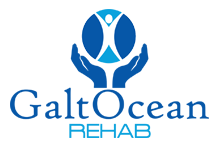In the realm of mental health and addiction, there exists a complex interplay of various disorders, often co-occurring and exacerbating one another’s effects. Among the most common are depression and anxiety, which frequently accompany addiction, forming what professionals term as co-occurring disorders. Understanding this intricate relationship is crucial for effective treatment and recovery.
The Intersection of Depression, Anxiety, and Addiction
Depression and anxiety are among the most prevalent mental health disorders globally, affecting millions of individuals of all ages and backgrounds. When coupled with addiction, the challenges of managing these conditions become significantly more daunting.
Depression:
Depression, characterized by persistent feelings of sadness, hopelessness, and disinterest in activities once enjoyed, can often drive individuals toward substance use as a coping mechanism. The temporary relief provided by drugs or alcohol may seem like an escape from the overwhelming emotional pain of depression. However, this relief is fleeting and can ultimately deepen the cycle of addiction.
Anxiety:
Anxiety disorders manifest in various forms, including generalized anxiety disorder (GAD), panic disorder, social anxiety disorder, and specific phobias. The constant worry, fear, and apprehension associated with anxiety can lead individuals to seek solace in substances to alleviate their symptoms. Similar to depression, substance use provides a temporary reprieve from anxiety but contributes to a vicious cycle of dependency.
Addiction:
Addiction, whether to drugs, alcohol, or other substances, often develops as a result of attempting to self-medicate underlying mental health issues. Substance use temporarily numbs emotional pain or anxiety-inducing thoughts, reinforcing the behavior despite its harmful consequences. Over time, addiction compounds the individual’s mental health struggles, creating a cycle that is challenging to break without professional intervention.
The Bidirectional Relationship
The relationship between depression, anxiety, and addiction is bidirectional, meaning each condition can exacerbate the others in a continuous cycle of negative reinforcement.
- Self-Medication: Individuals experiencing symptoms of depression or anxiety may turn to substances as a means of self-medication to alleviate emotional distress.
- Neurochemical Imbalance: Prolonged substance use alters brain chemistry, exacerbating symptoms of depression and anxiety or triggering their onset in individuals predisposed to these conditions.
- Social Isolation: The stigma surrounding mental illness and addiction often leads to social withdrawal and isolation, further exacerbating feelings of depression and anxiety and increasing reliance on substances for relief.
- Impaired Decision-Making: Addiction impairs judgment and decision-making abilities, making it harder for individuals to seek help for their mental health issues or adhere to treatment plans.
Treatment Approaches
Addressing co-occurring disorders requires an integrated treatment approach that simultaneously targets both mental health and addiction.
- Dual Diagnosis Treatment: This specialized approach acknowledges the interconnected nature of mental health and addiction, providing comprehensive care tailored to each individual’s unique needs.
- Medication Management: Psychiatric medications may be prescribed to alleviate symptoms of depression and anxiety, alongside therapies aimed at addressing the underlying causes of addiction.
- Therapeutic Interventions: Cognitive-behavioral therapy (CBT), dialectical behavior therapy (DBT), and other evidence-based therapies help individuals develop coping strategies, identify triggers, and address maladaptive thought patterns.
- Support Groups: Participation in support groups such as Alcoholics Anonymous (AA) or Narcotics Anonymous (NA) offers peer support and a sense of community vital to long-term recovery.
Finding Hope
Breaking the stigma surrounding mental illness and addiction is essential for individuals to seek the help they need without fear of judgment or shame. By fostering understanding, empathy, and acceptance, we can create a supportive environment where individuals feel empowered to embark on the journey of recovery.
If you or someone you know is struggling with co-occurring disorders, know that help is available. Galt Ocean Rehab Center can help you begin the journey toward healing and reclaiming a life of health and fulfillment.
Contact us today to explore your options and take the first step toward a better life.


Recent Comments